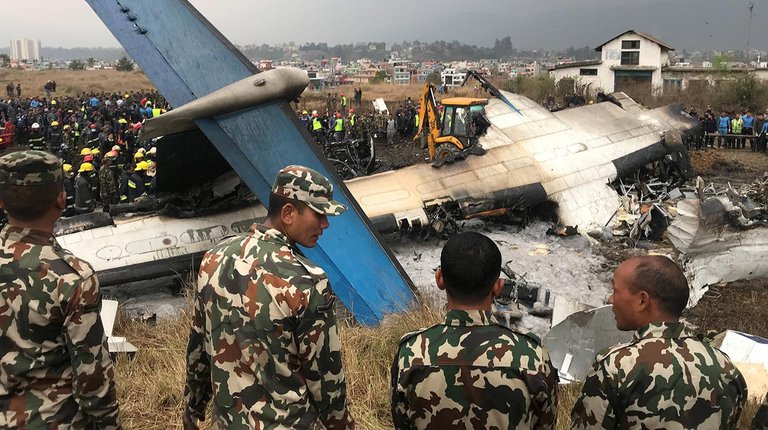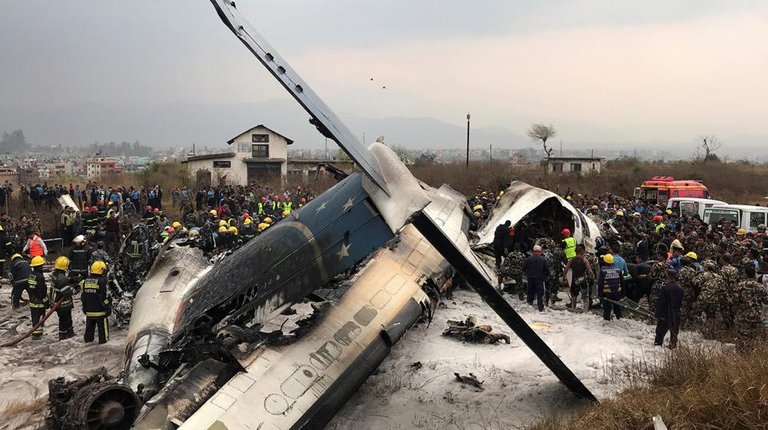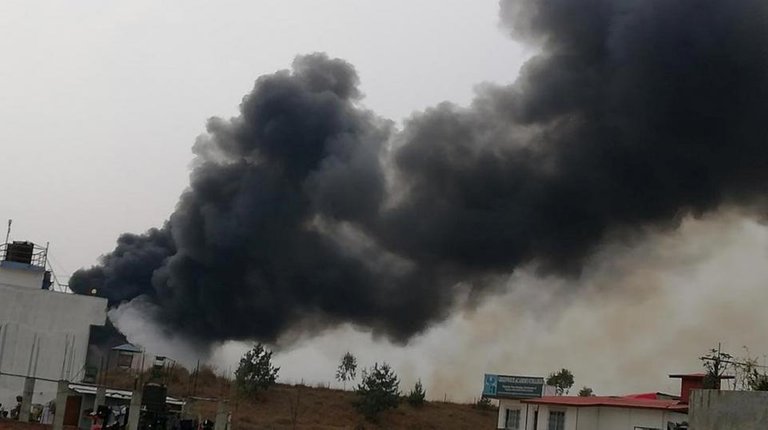The March 12 tragedy, in which at least 51 people, including 28 Bangladeshis, were killed as the US-Bangla Airlines aircraft crashed and burst into flames while landing at the Kathmandu airport in Nepal, appeared to have deeply rattled the conscience of a rather small circle of pilots.
Some of them are urging others to stand up and start to say no to the compromises they routinely make under pressure of management.

“It's human lives that are at stake! This is what we pilots deal with every single day. It's a sacred duty, not the glamorous job the media portrays!” reads one of the passionate appeals that did the rounds on social media.
The Daily Star talked with half a dozen pilots. None of them wanted to have their names revealed because they fear their services would be jeopardised and none of the allegations could be independently verified.
But since the nature of allegations coming from a variety of aviators is similar, those deserve special attention for the sake of passengers' safety.
Though expressed in privacy, their opinions and concerns should be discreetly assessed by the Civil Aviation Authority of Bangladesh (Caab) and the government before taking appropriate actions to address the grim issues.
One pilot wrote: “This accident was just waiting to happen. The safety culture or truly speaking the 'lack of it' in private sector is simply outrageous!”
He alleged that pilots are forced by management to operate in situations where it's prudent not to fly. Maintaining flight schedule and commercial considerations take precedence over flight safety.

Another pilot, a captain, wrote: “We routinely observe private carriers shooting approaches well below the minimum visibility, departing for a destination with very marginal weather or visibility, compromising on technical issues, flying without weather radar, forbidding pilots to give entry in the engineering log especially at outstations as grounding would cost money!
“I've often seen Biman or other foreign carriers holding for visibility to improve in winter when …. [names of two private airlines] not only commencing approach but landing!!,” he wrote.
One pilot shared how he was forced to fly while he was trying to apply “pilot discretion” in a foggy morning of December last year.
“There was no permission to fly from tower for low visibility. A phone call came [from the head office] moments after I declined to fly the plane to Chittagong. I was shouted at and told to take off on the dot,” he told this newspaper.
My employer is a time-freak, and has ways to manage airport authorities, he said with a wry smile.
Many pilots also questioned how US-Bangla airlines could send a very inexperienced first officer as co-pilot to Kathmandu. The budget airline maintains such risky practice in absence of expert manpower on its payroll -- an allegation it routinely refutes.
A Qatar Airways pilot believed that Captain Abid Sultan, pilot of the ill-fated US-Bangla plane, made a “massive pilot error” by doing dual jobs of communicating with the tower while landing at a dangerous airport like the one in Kathmandu.
“The captain took over communication and was also flying. And it's due to the inexperience of the first officer [who was reported to be on her first trip to Nepal].”
A very seasoned pilot of Biman Bangladesh Airlines wrote: “I've heard many harrowing stories from our first officers who were in the private sector before. Even if there are some exaggerations, even if I consider only 25 percent of what they say is true, it is alarming.”
“Biman doesn't allow such inexperienced first officers even to fly to Cox's Bazar!” he continues.
The companies don't accept “no” for an answer when it comes to flying even in extreme conditions.
A captain, who flies Dreamliners for a Middle Eastern airline, alleged pilots were even fired from private companies for refusing to accept unsafe operation.
He mentioned that one local airline had its pilot fired because the aviator said he was “fatigued”. And fatigue comes from overwork.
One pilot was fired because he did not take off as the weather at the destination airport was below the minimum required. One pilot was fired because he complained about Saidpur airport's non-standard light.
Another Bangladeshi pilot working at a foreign airline thinks the reporting and follow-up at the Caab and within the airlines are not dependable. The airlines do not report safety issues to the Caab and the Caab also doesn't follow up.
Most of the pilots appeared quite critical of the role of some Caab officials.
They are the ones who keep the regulators' eyes and ears shut, alleged a Turkish Airline pilot, who worked for a private airline a few years back.
“Compromise is for money and gifts,” the pilot quipped
[source]>>>

Hi! I am a robot. I just upvoted you! I found similar content that readers might be interested in:
http://www.thedailystar.net/frontpage/us-bangla-airlines-plane-crash-pilots-open-private-1550236